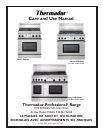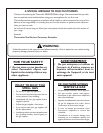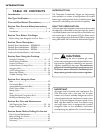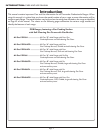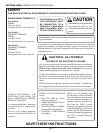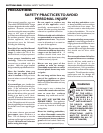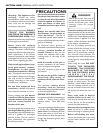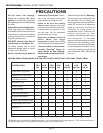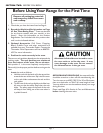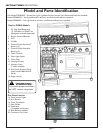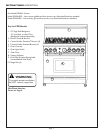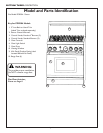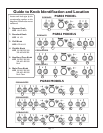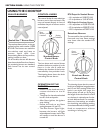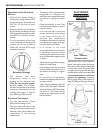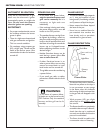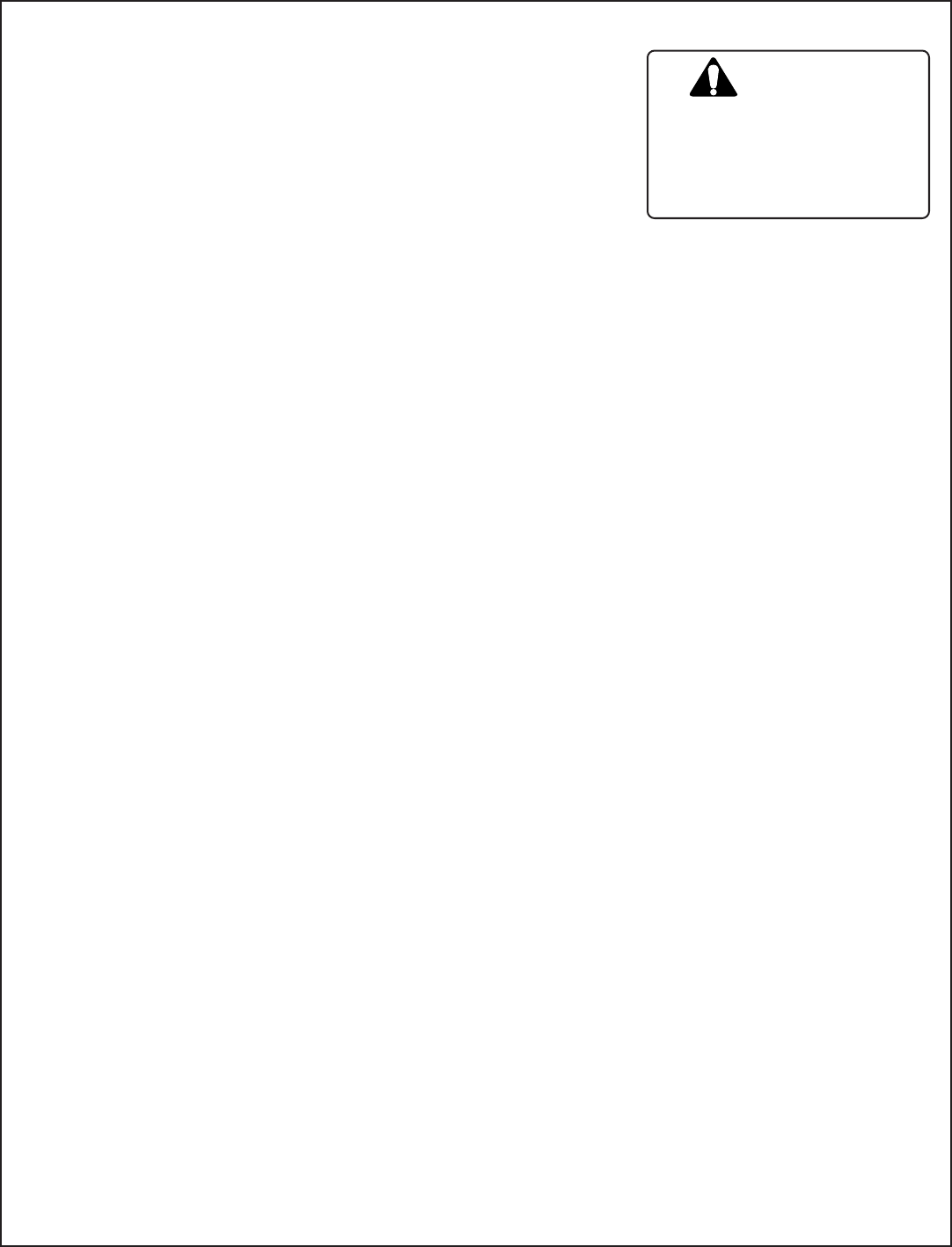
SECTION ONE: GENERAL SAFETY INSTRUCTIONS
PRECAUTIONS
Warning: The appliance is for
cooking. Based on safety
considerations, never use the oven
or cooktop to warm or heat a room.
Also, such use can damage the
cooktop or oven parts.
When using the cooktop: DO NOT
TOUCH THE BURNER
GRATES OR THE IMMEDIATE
SURROUNDING AREA. Areas
adjacent to the burners may become
hot enough to cause burns.
Never leave the cooktop
unattended when using high flame
settings. Boil overs cause smoking
and greasy spillovers that may ignite.
More importantly, if the burner
flames are smothered, unburned gas
will escape into the room. See Inside
Front Cover regarding gas leaks.
Only certain types of glass, heat-
proof glass-ceramic, ceramic,
earthenware, or other glazed
utensils are suitable for cooktop
use. This type of utensil may break
with sudden temperature changes.
Use only on low or medium heat
settings according to the utensil
manufacturer’s directions.
Do not heat unopened food
containers; a buildup of pressure
may cause the container to burst.
During cooking, set the burner
control so that the flame heats
only the bottom of the pan and
does not extend beyond the
bottom of the pan.
Avoid using high flame setting with a
pan larger than the grate or with
one that spans more than one burner,
such as a griddle, for prolonged
periods of time. This can result in
poor combustion that generates
harmful by-products.
Use caution to insure that drafts
like those from forced air vents
or fans do not blow flammable
material toward the flames or
push the flames so that they
extend beyond the edges of the
pot.
Always use utensils that have
flat bottoms, large enough to
cover the burner. The use of
undersized utensils could expose a
portion of the flame and may result in
ignition of clothing.
To minimize burns, ignition of
flammable materials and unintentional
spillovers, position handles of
utensils inward so they do not
extend over adjacent work areas,
cooking areas, or the edge of the
cooktop.
Hold the handle of the pan to
prevent movement of the utensil
when stirring or turning food.
DO NOT use pots or pans on the
grill section.
Do not use the grill for cooking
excessively fatty meats or
products which promote flare-
ups.
The optional cutting board
accessory must be removed
before operating the griddle beneath
or burners adjacent to it.
GREASE IS FLAMMABLE. Let
hot grease cool before attempting to
handle it. Avoid letting grease
deposits collect. Clean after each
use.
For proper lighting and performance
of the burners, keep the igniter
ports clean. It is necessary to clean
these when there is a boil over or
when the burner does not light even
though the electronic igniters click.
See Page 38.
WARNING
After a spill or boil over, turn off
the burner and clean around the
burner and burner port. After
cleaning, check for proper
operation.
Clean the cooktop with caution.
Avoid steam burns; do not use a wet
sponge or cloth to clean the cooktop
while it is hot. Some cleaners produce
noxious fumes if applied to a hot
surface. Follow directions provided
by the cleaner manufacturer.
Be sure all cooktop controls are
turned off and the cooktop is cool
before using any type of aerosol
cleaner on or around the cooktop.
The chemical that produces the
spraying action could, in the presence
of heat, ignite or cause metal parts to
corrode.
When using the oven: DO NOT
TOUCH THE INFRARED
BURNERS, THE INTERIOR
SUR–FACES OF THE OVEN
OR THE EXTERIOR AREA
IMMED–IATELY
SURROUNDING THE DOOR.
Interior oven surfaces become hot
enough to cause burns. The heat
deflector, which deflects heat away
from the cooktop and the trim on
the top and sides of the oven door,
will also be hot when the oven is in
use.
Place oven racks in desired
position while oven is cool. If a
rack must be moved while the oven
is hot, do not let the potholders
contact the infrared burner.
Use care when opening the oven
door; let hot air or steam escape
before removing or replacing foods.
Before self-cleaning the oven,
remove the broiler pan, oven racks
and any other utensils, and excess
spillage.
Page 5



